.jpg?width=830&name=shutterstock_1820063132%20(1).jpg) Almost half of Americans state they will not get vaccinated against the COVID-19 coronavirus – at least not right away. Some of this stems from the speed at which the vaccines are being developed, but also from a segment of the population that has always been suspicious of any vaccines (so-called anti-vaxxers).
Almost half of Americans state they will not get vaccinated against the COVID-19 coronavirus – at least not right away. Some of this stems from the speed at which the vaccines are being developed, but also from a segment of the population that has always been suspicious of any vaccines (so-called anti-vaxxers).
The possibility that large swaths of the U.S. population may refuse or delay getting any one of the COVID-19 vaccines presents a serious challenge to the nation's health and the health of our business economy.
Employers are in a unique position to help propel vaccinations, accelerating the country towards the 75% vaccination target that has been cited by top infectious disease experts as being required to fully eliminate the need for social distancing.
Company leaders find themselves in this unique position because it's widely believed that they can, in most cases, legally compel their employees to get vaccinated, making it compulsory and a requirement for returning to work.
Now just because something can be done doesn't necessarily mean it should be done. There are persuasive arguments to be made on both sides of the issue. There are also some exceptions to consider, and some basic questions to be answered, such as where to even start among the workforce. We'll do our best to answer a few of these questions today.
Can Employers Legally Mandate Employee Coronavirus Vaccinations?
Most employers are eager to return to some semblance of "business as usual," and most experts agree that they are within their rights to require inoculations as a requirement of employment.
That's because it's a widely held belief that COVID-19 is such a threat to public health that employers will be able to make the case that requiring inoculation is "job-related and consistent with business necessity." That phrase in quotes is the standard by which the Americans with Disabilities Act permits employers to make medical inquiries and administer medical tests. Furthermore, it's worded in such a way that it's not limited to places such as hospitals, nursing homes, and other frontline professions.
And while it's true that federal agencies have not yet issued specific guidance to employers, the Equal Employment Opportunity Commission said employers could require workers to take COVID-19 screening tests back in March. That rationale will likely apply to mandatory vaccinations. Many legal experts also point to precedent from prior pandemics, including smallpox and the H1N1 swine flu, when employers were granted some leeway to require vaccinations.
Are There Exceptions Employers Need to Consider?
Absolutely. If anyone in the workforce can demonstrate that a disability or sincerely held religious belief prevents them from getting vaccinated, employers are required by federal law to provide "reasonable accommodation." This could take the form of a remote work arrangement or of a requirement to continually wear masks while at work, to cite two possible examples of many possible accommodations.
Most legal experts agree that an employer's ability to offer reasonable accommodations can determine whether it puts them in a better position to require vaccination. For example, factories, restaurants, frontline service providers, and other hands-on workplaces where teleworking is not an option may find a vaccine mandate too disruptive to on-going business operations. This is especially true if they don't have a plan for addressing employees who decline to take the vaccine.
One other thing to consider - employees could resist vaccination because of safety concerns and claim protection under the National Labor Relations Act, which protects the rights of employees, both unionized and not, to engage in "concerted activity" regarding employment conditions. And if enough people seek exemptions one way or another, it could dilute a vaccination program's effectiveness and make a mandate moot.
Should Employers Legally Mandate Workplace COVID-19 Vaccinations?
This is where things get a bit more nebulous. The unprecedented speed with which the COVID-19 vaccines were developed, coupled with the highly divisional state of our politics, understandably has many people concerned about the safety of the vaccines.
Between accusations of a politicized and uncooperative FDA and reported threats by President Trump, true or not, to fire the FDA Commissioner if he didn't approve Pfiizer-BioNTech's vaccine, it's really no wonder that the American public is suspicious. Perhaps more on point has been the limited testing on certain populations, including pregnant women.
With that as the backdrop, employers will have to determine if forcing workers to decide between getting a vaccine or losing their job could hurt morale at a time when anxiety is already high. They will also need to consider if such a mandate would risk disrupting their business operations if too many people refused to comply.
It's worth noting that many companies have spent the last several years championing their social responsibility above profits. After all, it was just in August of 2019 that the Business Roundtable issued a new "statement of purpose" calling for greater corporate responsibility – a stance that supposedly plays well with millennials and younger generations in the workforce.
That said, the Business Roundtable primarily consists of the heads of more than 180 of the largest U.S. companies, including Apple, Amazon, JPMorgan Chase, and Cisco, most of whom have the resources to weather the COVID-19 storm. Some have even profited from it.
That statement was also written before one of the worst economic disasters ever to hit our country. What we're really talking about here are smaller businesses that are merely struggling to survive and hold on another three, six, nine months, or longer until the worst of the pandemic is behind us.
Can Employers Be Held Liable If They DON'T Require Employee Vaccinations?
While the Occupational Safety and Health Administration (OSHA) requires that employers provide a safe work environment, it has not said what role a COVID-19 vaccine plays in that just yet. Nevertheless, most legal experts don't anticipate that the agency will require employers to mandate vaccination.
Can Employers Be Held Liable If They DO Require Employee Vaccinations?
On the flip side, it's not quite as clear what the liabilities could be on the employer side if an employee experiences adverse side effects from the vaccine, and any backlash could spiral into a public-relations issue. While we could look to precedent for answers, prior cases didn't involve a drug authorized only for emergency use by the FDA, and a more conservative-leaning Supreme Court could overturn prior precedent.
Are There Ways Employers Can Encourage Employees to Get Vaccinated Short of a Mandate?
As with almost every preventive care effort, educational campaigns that communicate the risks of not getting vaccinated, and the benefits of getting inoculated, are critical. Furthermore, employers should make sure to emphasize the cost (primarily free) and provide explicit information on where employees can go to get inoculated. (All great communications of this kind end with a call-to-action and precise instructions on how to get there.)
With five generations in the workforce, it's also important for employers to use multi-channel communication mediums, from print and online to video conferencing and SMS text messaging. Mailers into the home (especially basic two-sided postcards, which can be read by anyone without opening) should also be considered. These tend to get past the information gatekeeper and do a better job of reaching other key decision-makers and influencers in the household (not to mention other covered spouses and dependents.)
As far as incentives go, employers should be careful about the unintended consequences of over-incentivizing people to get vaccinated with things like bonuses. While these might raise an air of suspicion, employers should consider time-off to get inoculated, as well as free or reimbursed rides to vaccination clinics.
Who Should Employers Target for Getting Vaccinated First?
Last week, Johns Hopkins created a useful calculator that helps determine the likelihood of someone becoming infected with the coronavirus and the likelihood of related complications or death. The tool uses a number of risk factors, such as a person's age, gender, underlying health conditions, and sociodemographic factors.
While this tool might be an excellent place to start, employers should also consider what role each individual plays in the organization, such as how much close physical interaction certain positions require with other employees, customers, vendors, and consumable goods.
In Closing
Most employers probably have some time to think this through since the coronavirus vaccine(s) won't be available to the vast majority of us for several months, if not longer. By then, people's fears may be more alleviated, making the decision to mandate or not moot altogether.
Now wouldn't that be nice?
JP Griffin Group provides information and guidance based on our experience in the industry and our experience with our clients. Our services are not intended to be a substitute for professional advice from both your own employee benefits broker and legal counsel. Given the changing nature of federal, state, and local legislation and the changing nature of court decisions, JP Griffin cannot and will not guarantee that the information is completely current or accurate. This information provided herein does not include or constitute legal, business, international, regulatory, insurance, tax, or financial advice.
















